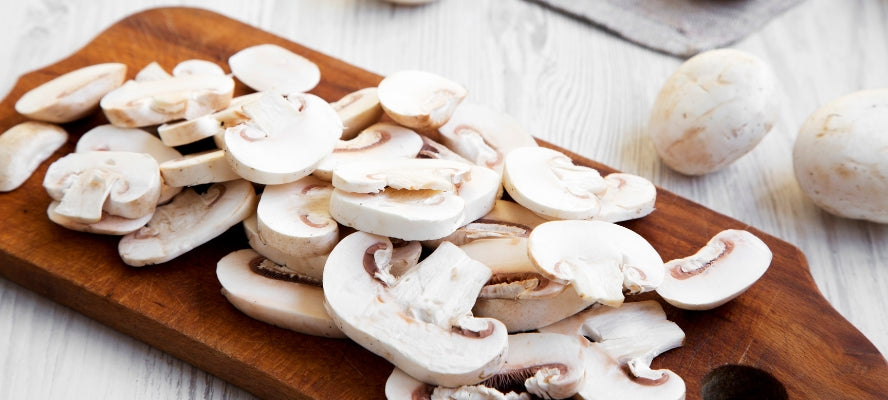By now, you might already know that we take a food first approach to all things nutrition which is why we wanted to share some great, natural vitamin D food sources.
1. Mushrooms
Not all mushrooms are created equal. When exposed to sunlight or UV light, certain mushrooms can produce vitamin D, just like human skin. Specifically, wild mushrooms and those specifically grown under UV lights can be powerhouses of this nutrient. Shiitake, maitake, and white button mushrooms are particularly good sources.
2. Oily fish
Sardines might be small, but they pack a mighty vitamin D punch. Just a single serving can provide nearly your entire daily recommended intake - for example, a 100g serving of wild salmon typically provides about 500-1000 IU of Vitamin D. Mackerel, herring, and salmon are also stellar choices. These fish aren't just rich in vitamin D; they're loaded with omega-3 fatty acids that support overall health.
3. Egg yolks
Free-range and pasture-raised chickens produce eggs with significantly higher vitamin D levels. Those bright, golden yolks aren't just delicious – they're nutritional powerhouses. The vitamin D content directly relates to the chickens' sun exposure, proving once again that natural, outdoor living matters.
4. Beef liver
Beef liver might not be a weekly staple for most, but it's incredibly rich in vitamin D. We're not suggesting you eat liver every day, but occasional consumption can provide a substantial nutritional boost.
Boosting absorption
Vitamin D is fat-soluble, which means it requires fat for optimal absorption. This is why whole-food sources are so effective. A piece of salmon, a handful of mushrooms sautéed in olive oil, or eggs cooked with a touch of butter provide the perfect delivery system.
A food first approach is the ultimate holistic approach
When you consume vitamin D through food, you're getting a complex nutritional package. It's not just about the vitamin – it's about how nutrients interact, how they're absorbed, and the additional benefits that come with natural sources.
The outdoor connection
It's amazing how this all fits together... Mushrooms, when exposed to UV light (whether from the sun or special growing lights), can create vitamin D just like we do. Fish swimming freely in deep waters build up these nutrients naturally. And those happy chickens pecking around outdoors? They're creating super-nutritious eggs without even thinking about it. When we step back and look at it, nature already figured this whole vitamin D thing out long before supplements existed.
Maybe the answer to better nutrition isn't always in a bottle – sometimes it's just about getting back to the basics that nature already perfected. Eat a diet rich in whole foods and spend time in nature for more benefits than you can count.



